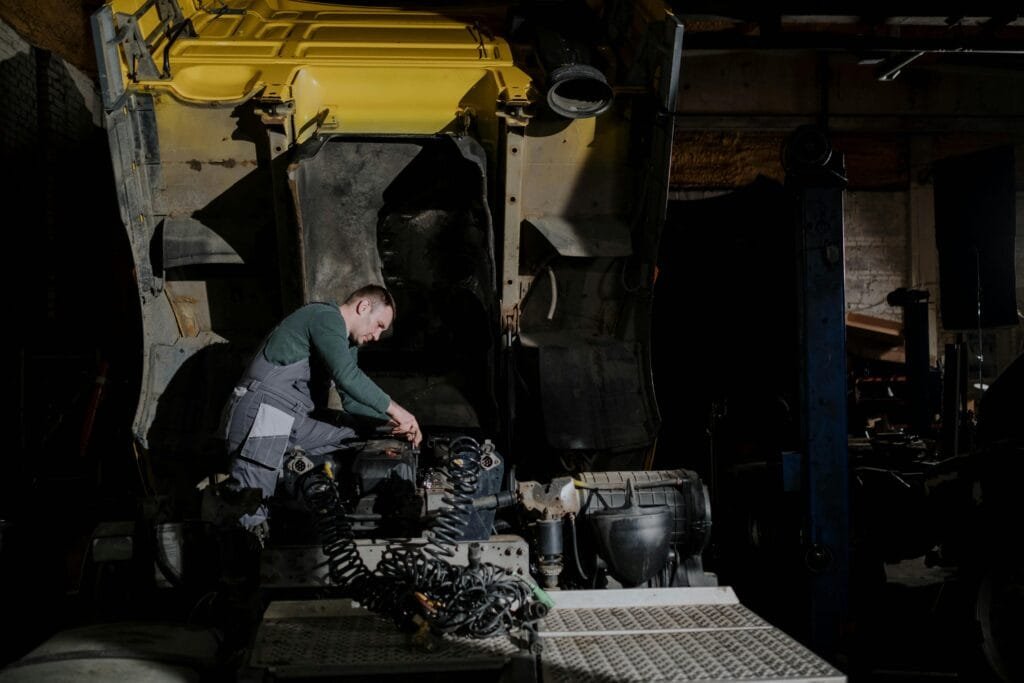When it comes to maintaining trucks, understanding the differences between diesel and gas engines is essential. Each engine type has its own advantages, maintenance needs, and potential challenges. Whether you operate a single truck or manage an entire fleet, knowing how these engines differ can help you make better maintenance decisions, reduce downtime, and extend your vehicle’s lifespan. For those seeking expert servicing and diagnostics, illawarra truck repairs offers a comprehensive range of solutions for both diesel and gas-powered trucks.

The Core Differences Between Diesel and Gas Engines
Diesel and gas engines function on similar principles; both convert fuel into energy through internal combustion, but they do so in distinct ways. Gasoline engines rely on spark ignition, while diesel engines depend on compression ignition. This fundamental difference affects everything from fuel economy to the types of maintenance each engine requires.
Diesel engines typically operate at higher compression ratios, which makes them more fuel-efficient and durable. They generate more torque, making them ideal for heavy hauling and long-distance transport. Gas engines, on the other hand, offer smoother acceleration and are often cheaper to purchase and repair. However, they may not last as long under constant heavy use.
Maintenance Requirements for Diesel Engines
Diesel engines are built for strength and endurance, but that doesn’t mean they are maintenance-free. In fact, because of their high-pressure systems and heavier components, they often require more specialized attention.
1. Fuel System Care:
Diesel engines use high-pressure fuel injection systems that are sensitive to impurities. Keeping the fuel clean through regular filter changes and using quality diesel fuel is critical to preventing injector damage and maintaining performance.
2. Oil and Lubrication:
Diesel engines produce more soot and contaminants due to higher compression. This means oil changes should be more frequent, and high-quality diesel-engine oil should always be used.
3. Glow Plugs and Starting Systems:
Unlike gas engines, diesels rely on glow plugs to start in cold conditions. Regular inspection of glow plugs ensures reliable ignition and reduces strain on the starter and battery.
4. Turbocharger Maintenance:
Many diesel engines are turbocharged. Ensuring proper lubrication and cooling of the turbo prevents premature wear and costly repairs.
5. Emissions and Aftertreatment Systems:
Modern diesel trucks are equipped with exhaust aftertreatment systems such as Diesel Particulate Filters (DPF) and Selective Catalytic Reduction (SCR). These systems require periodic cleaning or replacement to remain effective and compliant with emission standards.
Maintenance Requirements for Gas Engines
Gasoline engines generally have fewer maintenance complexities, but they still need consistent care to maintain efficiency and reliability.
1. Spark Plug and Ignition System:
Gas engines depend on spark plugs for combustion. Replacing worn plugs and checking ignition coils prevents misfires and ensures smooth engine operation.
2. Cooling System Maintenance:
Gas engines tend to run at higher temperatures. Regular checks of the radiator, coolant levels, and hoses can prevent overheating and engine damage.
3. Fuel and Air Filters:
Replacing fuel and air filters on schedule keeps the engine running efficiently and prevents dirt buildup that can reduce performance.
4. Oil Changes:
While gas engines don’t produce as much soot as diesels, regular oil and filter changes remain crucial for longevity.
5. Exhaust System Checks:
Over time, catalytic converters and exhaust manifolds can develop leaks or blockages, reducing engine power and fuel efficiency.
Cost and Longevity Considerations
When comparing maintenance costs, gas engines typically have lower short-term service expenses. Parts are often less expensive, and the repair process is more straightforward. However, diesel engines, though more costly to maintain, tend to last significantly longer, sometimes twice as long as gas engines, when properly serviced. This makes diesel trucks more cost-effective over their full lifespan, especially for businesses that rely on heavy hauling or long-distance driving.
Preventive Maintenance Is Key
Regardless of engine type, preventive maintenance is the best way to ensure reliability. Regular inspections, timely oil and filter changes, and early detection of leaks or unusual noises can save significant time and money in the long run. Following manufacturer-recommended service intervals and working with experienced mechanics ensures both diesel and gas engines perform at their best.
The Bottom Line
Both diesel and gas engines have their place in the trucking industry. Diesel engines excel in power, torque, and longevity, making them ideal for heavy-duty use. Gas engines, meanwhile, are better suited for lighter loads and shorter routes, offering lower upfront and maintenance costs. Choosing between the two depends on your operation’s demands and how you prioritize performance over cost.
Partnering with qualified service providers, such as Illawarra Truck Repairs, ensures that both diesel and gas engines receive the expert attention they need. From diagnostics and preventive maintenance to full overhauls, professional repair services help keep trucks on the road longer, operating safely and efficiently. By understanding your engine’s unique needs and investing in proper care, you can achieve maximum performance and long-term value from every vehicle in your fleet.
